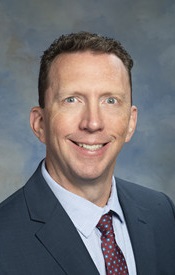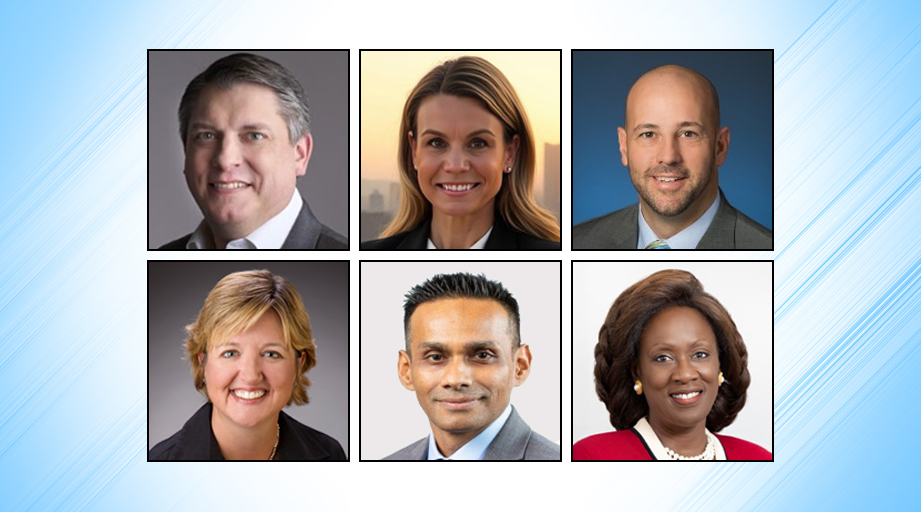
Every pharmacist swears an oath committing to a lifetime of service through the profession. But what does that mean in practice — especially in situations that take pharmacists out of their comfort zone?
“It’s easy to do the right thing when it’s the easy thing. It’s not so easy to do the right thing when it’s the hard thing, unfortunately,” said Jeff Little, vice president of operations at Saint Luke’s South Hospital in Kansas City, Missouri.

Little is leading the June 8 ASHP Pharmacy Futures 2025 session Ethics, Morality, and Advocacy: What It Means To Be a Professional. He’ll be joined by Dr. Elizabeth Chiarello, associate professor of sociology at Saint Louis University, for a thought-provoking session on how the profession responds to ethical dilemmas — and how it could do better.
Little spoke with ASHP news in advance of the session. An edited transcript follows.
ASHP: Why did you choose this topic for your session?
Little: This is a theme that I’ve cared a lot about for a long time: What does it mean to be a member of a profession, and what are our obligations, as a profession, to advocate for our patients?
What makes this particularly timely for Pharmacy Futures, I think, is what has been going on in the country and in the world in the last few years that’s really put pharmacists in an interesting ethical position. So I think it’s helpful to get back to what are we all here for, and what have we been taking for granted, and where do we need to change our perceptions about how our actions really affect our patients. It will be important, going forward, for pharmacists to be ethically grounded to deal with emerging issues like high-cost live-saving therapies, artificial intelligence in clinical care, and shifting federal policies.
What’s especially exciting about the presentation?
Little: My co-presenter, Dr. Elizabeth Chiarello, is a medical sociologist who has published and researched extensively on pharmacy ethics and pharmacy practice. She’s shown how pharmacists have evolved their decision-making over time. And I think her research brings an important external perspective to how we see the world and how that affects our patients. It will be important, going forward, for pharmacists to be ethically grounded to deal with emerging issues like high-cost live-saving therapies, artificial intelligence in clinical care, and shifting federal policies.
We’ll do some audience polling in a way that may cause people to really think about some things that they have previously understood to be true.
Give an example of how challenging their perceptions might make the attendees uncomfortable.
Little: One thing we’ll be talking about is prescription drug monitoring programs. That’s a tool that many pharmacists use to evaluate patients and their access to controlled substances.
Pointing out how these programs have put pharmacists in more of a law enforcement role than a patient care role — I think many people don’t realize that that has happened. So I think pharmacists might be uncomfortable in realizing that.
And there’s the overall concept that it’s not just a nice thing to do, but that it’s actually a professional and ethical obligation, to advocate for patients. Not just for the patients that are in front of you but all patients. And it might make people uncomfortable to think about, “How do I meet that obligation?” or “Am I really meeting that obligation?”
What are the most helpful insights attendees can gain from the presentation?
Little: I think that the biggest takeaway is resetting people to their true north and, we hope, providing a good framework about how to treat patients and how to advocate on behalf of patients going forward.
Imagine an attendee coming up to you after the session. What could they say about the presentation that would make your day?
Little: I’m hoping they will say that they appreciated the perspective and they learned something new. That they can they can see the role of a pharmacist in a different light — even someone that’s been a pharmacist for a long time. To me, that would be the ultimate goal of the presentation.
Any final thoughts?
Little: If we, as a pharmacy profession, believe something because it’s one of our values, I don’t think those values should change because it becomes uncomfortable. Our values are there specifically to remind us what to do when it gets uncomfortable.








